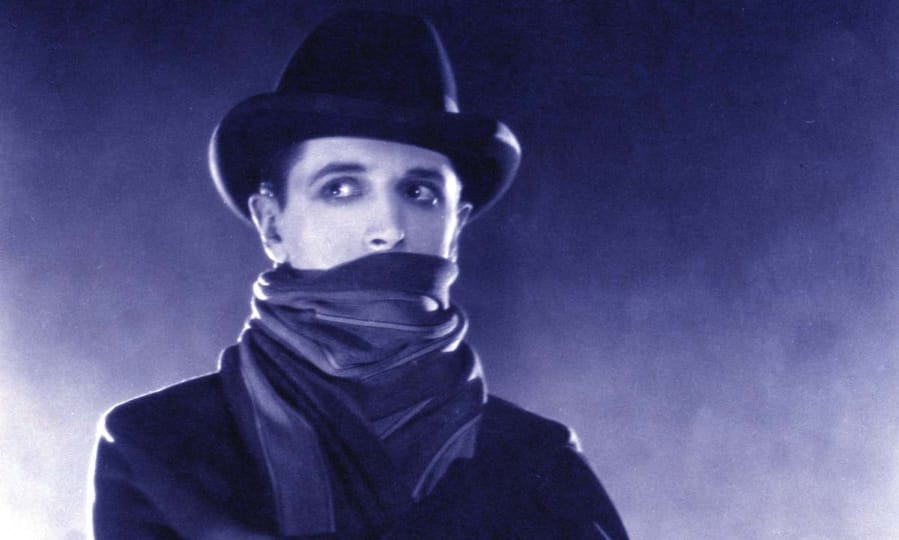Think you know Hitchcock? You probably don’t know “The Lodger: A Story of the London Fog,” an early film by the master of suspense that screens Sunday at Vancouver School of Arts and Academics, complete with live musical accompaniment.
Even most Alfred Hitchcock fans haven’t seen this exercise in creepiness, and they definitely haven’t heard it. “The Lodger” is a silent film, released in 1927 and now considered a powerful preview of Hitchcock thrillers to come, despite the lack of a soundtrack. His next film, “Blackmail,” was also begun without sound, until the technology arrived in England and many scenes were reshot with spoken dialog. “Blackmail” was released in 1929 in both silent and “talkie” versions, the latter ending up on many top-100 lists of great films.
Its precursor, “The Lodger,” isn’t nearly as famous, but the director himself later described it as the first true “Hitchcock film,” complete with jarring camera angles, spooky special effects and the familiar theme of an innocent man on the run. (Ironically, the film is based on a novel in which the title character is definitely guilty of murder, but studio executives insisted that handsome star Ivor Novello must be a good guy, so Hitchcock was forced to invent his own radical twist ending.)
One renowned scene in “The Lodger” turns silence to ingenious advantage, as a first-floor ceiling goes transparent so we can see the family downstairs reacting with alarm as a man upstairs paces the floor. It’s a strange and scary innovation, dreamed up simply because Hitchcock “wanted to show people hearing the footsteps” despite the silence, said Rodney Sauer.
If You Go
What: Alfred Hitchcock’s “The Lodger: A Story of the London Fog,” with live musical accompaniment by Rodney Sauer and a chamber group from the Vancouver Symphony Orchestra.
When: 3 p.m. Sunday.
Where: Vancouver School of Arts and Academics, 3101 Main St., Vancouver.
Tickets: $25; $10 for students.
Contact: 360-735-7278; vancouversymphony.org.
Sauer is the man you want in the orchestra pit for any silent-film revival. The Colorado composer, arranger and pianist has made a niche for himself as one of the world’s premier silent-film score suppliers. Because he sees his role as keeping the music authentic to the period, Sauer refrains from writing original film music. Instead, he draws on vast storehouses of prefabricated “scene scores” from a century ago to weave together the perfect music for any given feature.
“Composers and music publishers published music for different kinds of scenes,” he said. “You could buy music for a storm scene, a love scene, a chase scene. It was intended to be a library. You watch a movie, you pick music for each scene out of the library and put together your own score.”
In that day, Sauer said, writing music for the silent screen seemed like the wave of the future. “There was a big market. Composers who used to go into opera and ballet were now going into moving pictures. This was how you got your music performed,” he said.
“The size of the repertoire is just astounding. There are many thousands of orchestrations in little bits and pieces,” Sauer said.
He spent decades exploring, compiling and performing them — usually with his own little Mont Alto Motion Picture Orchestra, based in Boulder, but sometimes with other groups too.
A few years ago, Sauer got an invitation from his friend Igor Shakhman, manager and lead clarinetist for the Vancouver Symphony Orchestra, to come work with local musicians on a silent-film screening. Sauer has returned a few times each year to lead a small VSO group through live accompaniment for many silent comedy screenings as well as a few dramatic features like the 1925 horror classic “The Phantom of the Opera.”
Comedy scores tend to stay “light and frivolous and fun,” Sauer said. He enjoys the greater challenge of generating darker, weirder soundscapes for cinematic fare like “Phantom” and “The Lodger.” The stranger the visuals get, he said, the stranger the music must get too.
“In (The Lodger) we get into some serious, well-written music that was quite experimental for its time, with lots of atonality and unusual chord structures,” Sauer said. “It’s very emotional and dramatic. It’s fun to play and it really shows what these musicians can do. I think it’ll be a lot of fun to listen to.”
Joining Sauer on Sunday will be VSO musicians Bruce Dunn on trumpet, Eva Richey on violin, Igor Shakhman on clarinet and Dieter Ratzlaf on cello. The night before, the same group will accompany a screening of “The Lodger” at the Columbia Theatre in Longview.
Sauer said he’s excited about the rare opportunity to perform the same score twice, because no two performances are ever exactly alike.




